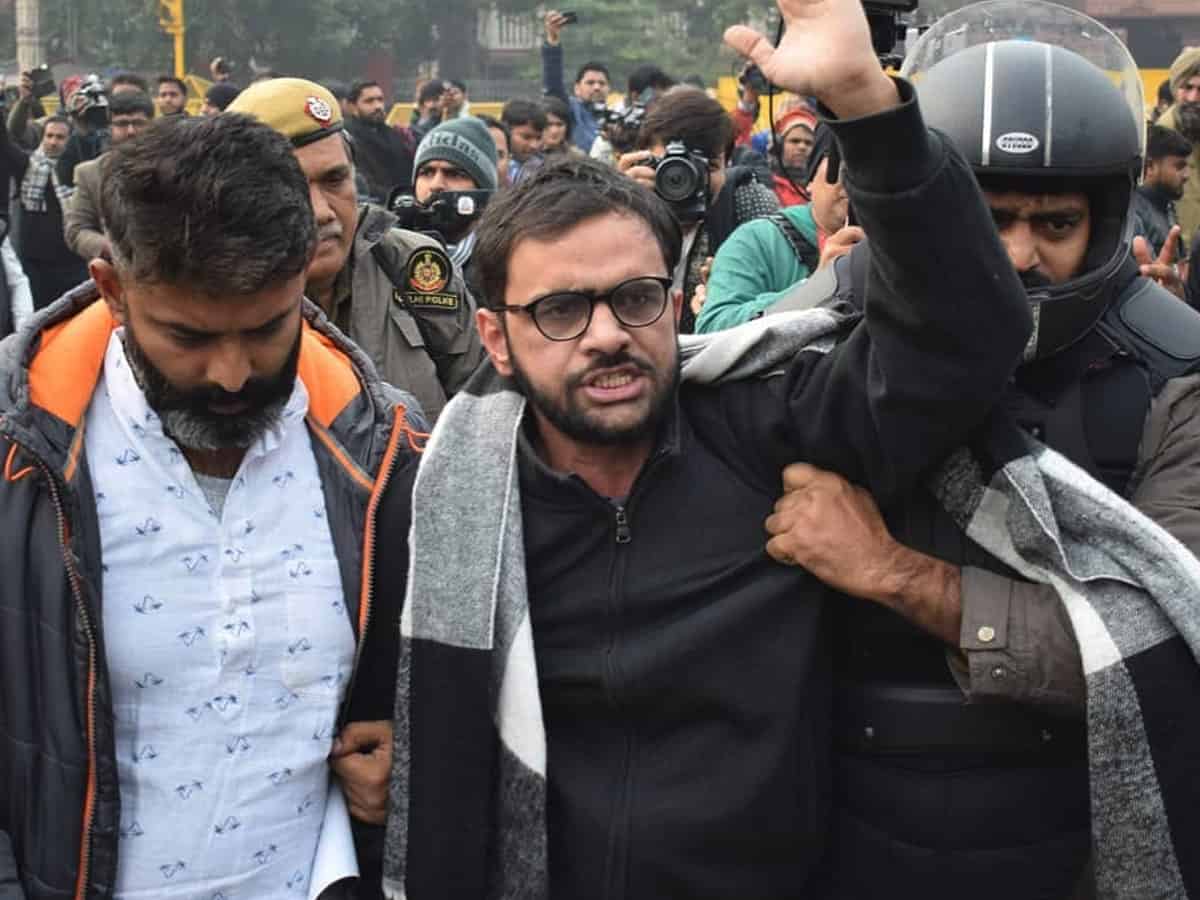
New Delhi: The Delhi High Court on Tuesday brushed aside former JNU student Umar Khalid’s contention that there was no consensus between those who were opposed to the Citizenship (Amendment) Act, saying there was a string of commonality running amongst all the co-accused in a case, including Sharjeel Imam.
The court said it is an admitted position that both Khalid and Imam were members of a WhatsApp group and they participated in a protest at Jantar Mantar and there are statements of various protected witnesses that confirm the presence of the duo at several meetings, including one held at the office of the Popular Front of India (PFI).
A bench of justices Siddharth Mridul and Rajnish Bhatnagar said the court cannot test the veracity of witness statements at the stage of bail under the Unlawful Activities (Prevention) Act (UAPA).
“The way this court reads the judgment passed by the Supreme Court in Watali…is that the court, at the stage of bail, can only look at the material and evidence as stated in the chargesheet, without testing its veracity. It can be rebutted only at the stage when there is other evidence, which is axiomatically at the trial,” the bench said while denying bail to Khalid in a case lodged under the UAPA in connection with an alleged conspiracy behind the February 2020 riots in northeast Delhi.
It was contended by Khalid’s counsel that there was absolutely no consensus between those who were opposed to the CAA and they were divergent people belonging to different schools of thought.
The counsel stated that Imam criticised a secular movement against the CAA while Khalid did not agree with him and the appellant was being lumped with a person who called for a deeply communal protest against the new citizenship law.
It was further stated that there was no ideological meeting of minds and the lower court had misinterpreted the statements of the witnesses to draw a connection between Khalid and Imam, whereas the two have never even spoken to each other.
However, the court said it found it a little difficult to accept the subject contention urged by Khalid at this stage and admittedly, “there exists a string of commonality, which runs amongst all the co-accused”.
As Khalid’s counsel relied on the call detail record (CDR) analysis of the relevant time, the bench said this was a matter of evidence that can be seen at the time of the trial and its veracity can only be verified after cross-examination.
“This court could very well examine this CDR analysis on a prima facie basis, provided the accusation of the appellant was limited to the aforesaid facts only, which is not the case herein. Admittedly, the accusations are much beyond the said dates and meetings. In fact, as already stated, a cumulative effect has to be seen on the basis of these meetings and statements,” the bench said, adding that it cannot turn a blind eye on other incriminating materials against Khalid in the case.
The bench said there was no denial that on February 17, 2020, Khalid delivered a speech at Maharashtra’s Amrawati, referring to the visit of then US president Donald Trump, which according to the prosecution heralded the northeast Delhi riots.
“The manner in which the administration initially rejected permission for the appellant’s speech and thereafter, how the speech came to be delivered clandestinely on that very day is something which gives credibility to the accusation of the prosecution.
“Further, the CCTV footage filed along with the chargesheet, its analysis and the flurry of calls amongst the appellant and other co-accused after the riots of February 24, 2020 also merit consideration in the background of various meetings, statements of various protected witnesses and the WhatsApp chats filed in the chargesheet,” it said.
The bench said taking into consideration the fact that Khalid was in constant touch with other co-accused persons, including Imam, who arguably was at the head of the conspiracy, it was difficult at this stage to form an opinion that there is no reasonable ground to believe that the accusation against the petitioner is prima facie not proved.
Khalid, Imam and several others have been booked under the UAPA and provisions of the Indian Penal Code (IPC) for allegedly being the “masterminds” of the February 2020 riots, which left 53 people dead and more than 700 injured.
The violence had erupted during protests against the CAA and the National Register of Citizens (NRC).



